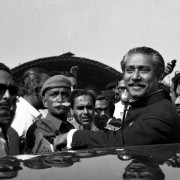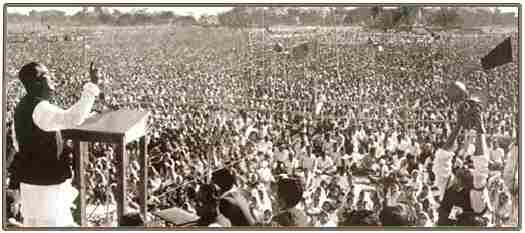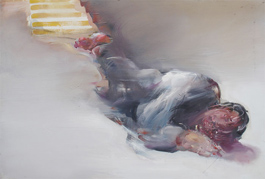 Bangabandhu’s assassination on 15 August 1975 prematurely deprivedBangladeshof its founding father at a time when the process of nation building was still incomplete. This event both destabilized and created a fissure within the nation which has not yet been bridged. This division and destabilization of the polity deflectedBangladeshfrom the course set by its liberation struggle which had provided the basis for the foundational principles of theBangladesh constitution: democracy, nationalism, secularism and socialism. Since that fateful day in August, each of these foundational principles has been exposed to contestation or even outright repudiation. This assault on the very principles of our nationhood has destabilised the nation, compromised the working of our democratic institutions and thereby weakened the process of governance. It could, thus, be argued that the bullets which killed Bangabandhu were also intended to destroy the very idea ofBangladeshfor which the liberation war was waged. Let us briefly explore these long-term consequences which emanated from the events of 15 August 1975.
Bangabandhu’s assassination on 15 August 1975 prematurely deprivedBangladeshof its founding father at a time when the process of nation building was still incomplete. This event both destabilized and created a fissure within the nation which has not yet been bridged. This division and destabilization of the polity deflectedBangladeshfrom the course set by its liberation struggle which had provided the basis for the foundational principles of theBangladesh constitution: democracy, nationalism, secularism and socialism. Since that fateful day in August, each of these foundational principles has been exposed to contestation or even outright repudiation. This assault on the very principles of our nationhood has destabilised the nation, compromised the working of our democratic institutions and thereby weakened the process of governance. It could, thus, be argued that the bullets which killed Bangabandhu were also intended to destroy the very idea ofBangladeshfor which the liberation war was waged. Let us briefly explore these long-term consequences which emanated from the events of 15 August 1975.
Assault on democracy
One of the central elements of theBangladeshliberation struggle was the centrality of democracy in our system of governance, built upon the principle of the supremacy of civilian rule established through free and fair elections. The last 13 of our 24 years of association withPakistanwere spent under substantive military rule which could only be sustained by the unbroken refusal ofPakistan’s ruling elite to tolerate any form of popular rule established through free elections. The repudiation of the outcome of the 1970 elections, which provided Bangabandhu with an overwhelming mandate for self-rule by the Bangalis, took us into the final stage of the democratic struggle — a war for national liberation.
The assassination of Bangabandhu set the stage for another 15 years of cantonment rule. As in the case ofPakistan, when Ayub Khan shed his uniform and transformed himself into a civilian leader, sustained by pseudo-elections and a political party fabricated in the cantonment, a similar political cycle was then repeated inBangladesh. The generals who seized power over the dead bodies of Bangabandhu and his four colleagues assassinated in jail in November 1975, similarly transformed themselves into civilian rulers. They too needed to do so through elections of dubious veracity and the fabrication of political parties within the cantonment.
The ascendance of one such leader, General Ziaur Rahman, and his party inevitably set the stage for a replay of the same drama. One more president was assassinated in May 1981, again by army officers who thought they could change the course of our politics. However, these assassins were no more able to hold power than were their predecessors in regicide. Yet another general, Hussein Mohammed Ershad, then Chief of Army Staff, seized power, under Martial Law, thereby perpetuating cantonment rule for another decade. Ershad went on to create his own party and stage his own electoral victories, thereby following a well established tradition set first by Ayub Khan, and perpetuated by his successors from the cantonment, whether inPakistanorBangladesh.
This compulsion on the part of some of our generals to reincarnate themselves as civilian leaders was instrumental in weakening the fabric of our democratic system. To construct a political party inBangladesh, which would confront the Awami League, which served as the vanguard party for our democratic and national liberation struggle, over three decades and remained politically unchallenged among the people ofBangladesh, demanded some skillful political engineering within the cantonment. Ayub Khan and Yahya Khan had shown the way in the 1960s by reaching out to Pakistan’s most purchasable political players, the Muslim League. Significantly, in later years, the ever saleable Muslim League provided a political base first for Ziaul Huq and later for Pervez Musharraf, when they decided to enter politics.
InBangladesh, fabricating a party which could challenge the Awami League, demanded more complex reverse political engineering. Hitherto unelectable groups of leftists had to be forced into an unnatural marriage with the very political forces which had historically fought against Bangali nationalism and eventually collaborated with thePakistanarmy to suppress our struggle for national liberation. Political parties which had fought unrelentingly against our national aspirations and were deemed to have been buried in the course of the liberation struggle had to be resurrected and legitimized so they could join the mobilization against the Awami League. In consequence, a party which actively participated in the genocide of the Bangali people could eventually be invited to sit in the government of an independentBangladeshand for some of its leaders to fly the national flag as cabinet ministers.
The distortions in the democratic process which followed on the events of August 15 also administered a near fatal wound to the rule of law. The tradition set in motion after August 15 when the military rulers of Bangladesh, in clear violation of the constitution, pardoned the killers of Bangabandhu and elevated most of them into our diplomatic representatives, has haunted us ever since. This shameful act was subsequently upheld by the subsequent administrations of H.M. Ershad and Khaleda Zia. That this act of murder was then ratified by Parliament did not add to the lustre of our democratic institutions. That the killers of Bangabandhu can remain unpunished after 34 years has served as an invitation to all assassins to practise their trade in the hope that the rulers of the day will politically rehabilitate them. Ziaur Rahman, himself became the first victim of this condoning of regicide.
Erosion of nationalism
Bangabandhu, in his person, embodied the nation. He was a larger than life figure who even before he became Prime Minister of an independentBangladesh, was a globally recognized figure. Even though incarcerated on death row in a prison cell inPakistanin 1971, he was the recognized face of our liberation struggle and became a household figure throughout the world. In 1971, Bangabandhu symbolized our struggle for nationhood. There was no second person fromBangladeshwho could have proclaimed our independence and invested it with credibility and legitimacy in the eyes of the world.
As a result of Bangabandhu’s indelible association with the emergence ofBangladesh, he commanded a visibility and standing in the international community which no other leader ofBangladeshhas since enjoyed. The notion that he was, by any word or deed, willing to subordinateBangladesh’s interest, even to a much stronger neighbour such as India, remains one of the great calumnies of our history. He was a proud man who loved his country. He extended his pride to his country and in his lifetime saw that our flag was always held high.
Only a person of the stature of Bangabandhu could have persuaded Indira Gandhi to withdraw her troops from Bangladeshwithin three months of their entering our boundaries as an all conquering army who held 93,000 soldiers of thePakistanarmy in their custody onBangladeshsoil. That moment, on 15 March 1972, at the Dhaka stadium, when the commander of the Indian forces inBangladeshhanded over the Indian flag to Bangabandhu to symbolize the withdrawal of his troops fromBangladesh, was one of the proudest moments in our history. Two years later it was again only Bangabandhu who commanded the courage and authority to travel to Lahore, to attend the summit of Islamic states, stand on the dais at Lahore Airport with Zulfikar Ali Bhutto and take the salute of the Pakistan army as it marched past him while Amar Sonar Bangla was being played by their band and the Bangladesh flag stood high behind him. Wherever else Bangabandhu travelled on the world stage, he was greeted by such leaders as Brezhnev, Tito, Castro, Sadat, Boummedienne, King Faisal and Heath as a respected equal.
In his relations withIndia, Bangabandhu recognized our great debt to that nation for their support to our liberation struggle, but he never let this influence his judgment when he negotiated with Indira Gandhi and she respected him for this. All outstanding problems were put on the table for resolution in Bangabandhu’s lifetime. Such negotiations did not require loud talk but were based on the authority Bangabandhu commanded in his relations with our neighbour and the unifying influence he exercised within the country. Our neighbours recognized that when Bangabandhu committed Bangladeshto a position in our bilateral relations, he could carry the country with him. Since his passing no leader could speak for the entire nation. This has weakened our stance in all sensitive negotiations and made it difficult for us to reach sustainable agreements on important issues.
End of secularism
Bangabandhu was a genuinely religious man who practised his faith out of belief and without ostentation. For him secularism did not mean the abandonment of religion. Brought up in the faith and traditions of ruralBengal, he knew full well the deep-seated faith which guided the lives of most Bangladeshis. What Bangabandhu had, however, learnt through long and painful experience was the dangerous consequences of the abuse of religion for political gain during the tenure of Pakistani rule. He was witness to the cynical opportunism of ambitious leaders who fed their secular appetites for money and power by assuming a religious identity in public. These same leaders thought nothing of repressing all forms of democratic struggle, in the name of defending Islam. The logical culmination of this mendacious abuse of religion for political ends was the genocide committed on the people ofBangladesh, under the leadership of a general who was rarely sober. It was a central tenet of Bangabandhu’s political faith that this deliberate manipulation of religious beliefs, by political parties and leaders seeking power, was fatal to the working of the democratic process and should not be replayed in an independentBangladesh. Secularism, as it was conceptualized in theBangladeshconstitution, was exclusively designed to end this tradition inherited fromPakistan, of abusing religion for political gain.Post-1975, the very same propaganda which had infected thePakistanpolity about religion being in danger, was back in use in an independentBangladesh, this time being used against the Awami League. The same variety of political adventurers, with strong appetites for material pleasures, again assumed public postures of piety, in order to make their political fortunes as defenders of the faith.
In this day and age, secularism remains the concern of a receding community of mostly aging liberals. Today, practising politicians, from all sides of the political divide, with aspirations for electoral gain, have to project their religious identity publicly, be seen to be observant in their religious practices and remain ambiguous about their commitment to secularism. The ultimate beneficiary of this new culture may, at the end of the day, be the cult of the terrorist who, in the final analysis, is willing to die for his ideology rather than merely seek electoral office.Towards a just society?
Bangabandhu could hardly be termed a socialist in the conventional sense of the term. But he was certainly possessed of a socialist consciousness which enabled him to empathise with the concerns of the dispossessed and the working class. He reached out to this class during the crucial phase of the liberation struggle between 1969-1971 and drew upon their support not just for his massive electoral victory but also to confront the mobilization against the forces of Bangali nationalism by the Pakistani junta. It was Bangabandhu’s recognition of the role played by these people in the liberation war, as much as his sensitivity to the concerns of ordinary people, which underwrote his commitment to the construction of a more egalitarian society than he left behind in Pakistan. How this was to be realized was, for him, a matter of empiricism rather them ideology. He understood, as a person who had invested his life in retaining the support of the masses, that a society built on growing economic inequality and widening social disparities, was politically unsustainable in a democraticBangladesh.
This vision of society, which guided Bangabandhu in the design of his economic agenda, remains a distant memory. TheBangladeshof today is built upon unjustly acquired wealth which has created unimaginable cleavages in what was, once, a relatively egalitarian society. Bangabandhu, himself grew up in a society where those at the upper echelons of the social ladder, such as himself, still shared the same universe of values with their less affluent relations in rural Bangladesh. This world no longer exists inBangladesh. Today we have created an elite which aspires to first world lifestyles within a globalised society. This world is the outcome of the economic policy regime which has guided our fortunes since 1975. It may have givenBangladeshgrowth, modernization and even reduction of poverty but it has left behind a divided society, replete with social tensions, permeated with envy, anger and violence. This is a world which is likely to be challenged not by socialists but by the cult of the suicide bomber, committed to a quite different ideology.Today we may seek to honour Bangabandhu’s memory through a month of mourning.
We may even bring his killers to justice. But can we reignite the message of his life by recapturing the values of democracy, secularism, nationalism and social justice which guided his political life? Can we build a society which can reestablish the rule of law, which punishes criminals irrespective of their political colour, which respects the right to political dissent and seeks to genuinely democratize the practice of democracy, which can let our minorities enjoy the same rights and opportunities open to the majority community, not just in principle but in practice? Can we look forward to a Bangladesh where the landless could aspire to cultivate their own land, the property-less could become shareholders in the corporate empires of the business world, the bustee dwellers could expect to own their own homes, our small farmers could share in the value created by their unrelenting toil on the land or our millions of women who sustain our garment industry could expect to share in the profits created by their long hours of labour? When the followers of Banglabandhu talk of implementing his dreams, they should keep such goals in mind. OtherwiseBangladeshwill continue along the long path we have travelled since 15 August 1975, which has distanced us from Bangabandhu and his vision of a Bangladeshfor which he and so many millions shed their blood.
Author : Professor Rehman Sobhan, Professor Rehman Sobhan is Chairman, Centre for Policy Dialogue.
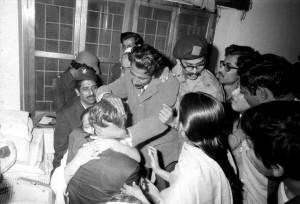 On this day in 1975, the Father of the Nation, Bangabandhu Sheikh Mujibur Rahman, was assassinated and the nation should be ashamed of the unpardonable failure of not being able to finish the trial processes of the killers even after the lapse of 34 years since his gruelsome killing.
On this day in 1975, the Father of the Nation, Bangabandhu Sheikh Mujibur Rahman, was assassinated and the nation should be ashamed of the unpardonable failure of not being able to finish the trial processes of the killers even after the lapse of 34 years since his gruelsome killing.
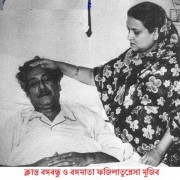
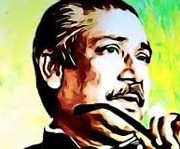

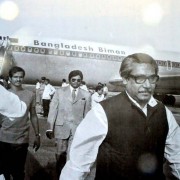
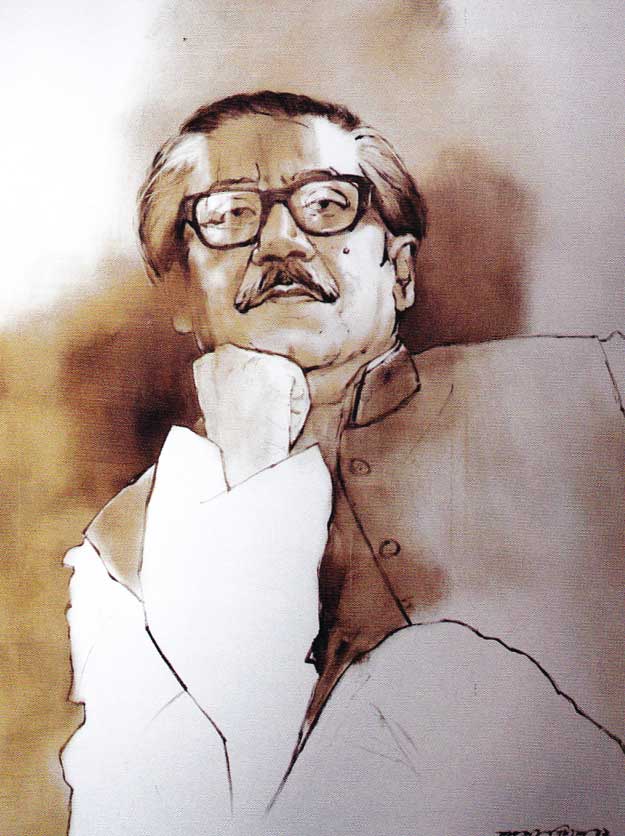
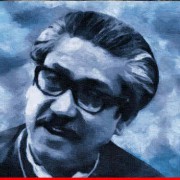
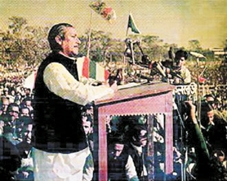
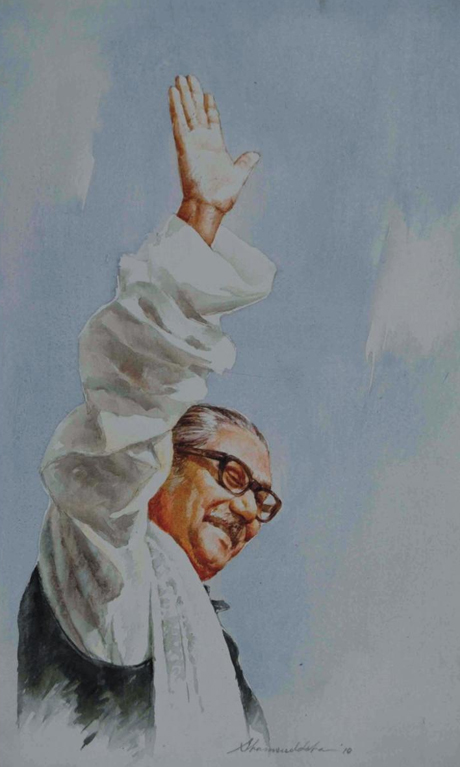 ????, ????????? ?? ?? ??????? ?? ?????? ???????? ?????? ?????? ????? ????????????? ???? ???????? ??????????? ???????? ?????? ??????????????? ?????? ??????? ?????????????????? ?????? ???? ???????????????? ?????????? ????? ????????? ??????????? ? ??????? ???? ??????? ???????????? ?????? ???????? ?????? ??????? ???????? ????????? ?????????? ???????? ?????? ???? ???? ??????? ??????????? ????-??????? ??; ???????? ??????? ????????? ???? ????????? ??????, “??????? ?? ???? ??? ??? ????? ???????? ????? ??? ??? ????? ???? ?????”? ??? ????????????, ?????? ? ??????? ?????? ????????? ?????????? ????????? ????? ??????? ????????????? ????? ??? ???? ? ?????? ??? ????? ?????? ????????? ????? ??????, ?? ?? ?????, ????????????? ?????? ???? ? ????? ???????? ?????????? ??????? ?????? ??? ??????????? ?????? ’?????? ??????? ?????????? ???????’ ??? ???? ??????? ????????? ????????? ???????? ?? ?? ?? ????? ??????????? ??????? ?????????????? ????????????? ???? ????? ????????? ??????, ?? ??????? ????????? ???? ????? ????????? ????????? ???????? ????? ???? ??????????????, ???????????, ???, ????????? ????? ?????? ????????? ????????? ??????? ??? ??????? ???? ????? ????? ??????? ????????? ????????? ???????, ?????? ????? ????? ??? ??? ????????? ??????? ??????? ??????? ????????? ????? ??????
????, ????????? ?? ?? ??????? ?? ?????? ???????? ?????? ?????? ????? ????????????? ???? ???????? ??????????? ???????? ?????? ??????????????? ?????? ??????? ?????????????????? ?????? ???? ???????????????? ?????????? ????? ????????? ??????????? ? ??????? ???? ??????? ???????????? ?????? ???????? ?????? ??????? ???????? ????????? ?????????? ???????? ?????? ???? ???? ??????? ??????????? ????-??????? ??; ???????? ??????? ????????? ???? ????????? ??????, “??????? ?? ???? ??? ??? ????? ???????? ????? ??? ??? ????? ???? ?????”? ??? ????????????, ?????? ? ??????? ?????? ????????? ?????????? ????????? ????? ??????? ????????????? ????? ??? ???? ? ?????? ??? ????? ?????? ????????? ????? ??????, ?? ?? ?????, ????????????? ?????? ???? ? ????? ???????? ?????????? ??????? ?????? ??? ??????????? ?????? ’?????? ??????? ?????????? ???????’ ??? ???? ??????? ????????? ????????? ???????? ?? ?? ?? ????? ??????????? ??????? ?????????????? ????????????? ???? ????? ????????? ??????, ?? ??????? ????????? ???? ????? ????????? ????????? ???????? ????? ???? ??????????????, ???????????, ???, ????????? ????? ?????? ????????? ????????? ??????? ??? ??????? ???? ????? ????? ??????? ????????? ????????? ???????, ?????? ????? ????? ??? ??? ????????? ??????? ??????? ??????? ????????? ????? ??????